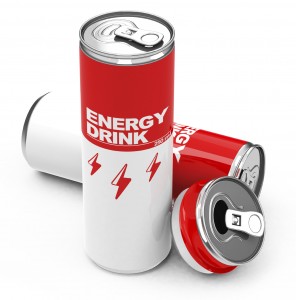With all the sugar and toxic chemicals in sodas, we should be pleased to know that children are drinking fewer caffeinated sodas these days. A recent study by the Centers for Disease Control and Prevention found that children, teens and young adults have decreased their caffeinated-soda consumption considerably: in 1999, 62 percent of kids to young adults named caffeinated sodas as their main source of caffeine. By 2010, that number had decreased to 38 percent.
But there is bad news: youths are now consuming more energy drinks and coffee than they were in 1999, with coffee consumption more than doubling since then.
This is an alarming statistic for doctors, who are seeing increasing numbers of children come into emergency rooms with seizures, heart palpitations, rapid heart rate, and other physical problems resulting from ingesting too much caffeine.
Of particular concern are “energy drinks” — which often contain two or more times the caffeine in an 8-ounce cup of coffee. These drinks, which were introduced in the American market in the mid-1980’s, have become enormously popular with many young people in recent years; sales of energy drinks, which are also sold internationally, reached $9.5 billion in 2012.
Many brands of energy drinks are marketed in ways that draw children and teens — in colorful containers and with names like “Monster” and “Rock Star.” The American Medical Association recently called for a ban on the marketing of energy drinks to children under 18, until more studies are conducted on their effects. And the American Academy of Pediatrics has stated that energy drinks with stimulants, including caffeine and others, have “no place” in the diets of children and adolescents.
In addition to the potentially dangerous aspects of too much caffeine, energy drinks contain empty calories from sugars, artificial chemical sweeteners, and some brands contain artificial preservatives and colorings. All around, energy drinks are a very poor choice for children. Some doctors also point out the irony that some athletic teens may take these drinks to boost their energy when playing sports — but caffeine and strenuous activity, particularly in hot weather, can lead to dangerous, and even deadly results.
But a youth certainly doesn’t have to be exercising in hot weather to be harmed after consuming energy drinks. The mother of a 19-year-old man who died from cardiac arrhythmia in 2012 sued an energy drink manufacturer, believing that her son’s fatal cardiac arrest resulted from a reported consumption of two daily cans of energy drinks in the three years before his death.
American poison control centers are hearing of children younger than six years drinking caffeine-infused energy drinks, thinking that they were regular sodas; also, energy drinks that come in small containers may be mistaken by children for drinks that they’re supposed to drink. Young children drinking these beverages can become ‘wired’, agitated, nauseous, experience tremors and have trouble going to sleep.
Energy drinks should not be consumed by young children under any circumstance. Because small children weigh much less than adults, they can be poisoned by an amount of caffeine that would be tolerable for a bigger person. Experts advise that parents keep energy drinks stored out of reach of children.
As far as teenagers, it’s a good idea to talk to your adolescent about the possible dangers of caffeine right after consumption, and how damage can also occur over a period of time of use. Whether it’s energy drinks, coffee or caffeinated sodas, you need to help your teenager understand that caffeine isn’t something to be overdone, and in fact should be avoided or kept to a minimum by youths. Better alternatives for teenagers are: getting enough sleep every night, and drinking healthy beverages to quench thirst, such as water, fruit juices diluted with water, and if needed, an occasional sports drink with electrolyte salts, which are lost during rigorous physical activity.
As a parent, it is certainly best to lead by example. If your children see that you have healthy dietary habits, they are much more likely to follow suit. Energy drinks should be consumed by adults only in moderation, when they are consumed at all. Getting plenty of sleep and eating a healthy diet, low in processed foods and high in fruits, vegetables, and lean proteins, will give a person all the strength, energy and alertness that they need.
By Lisa Pecos

Leave a Reply